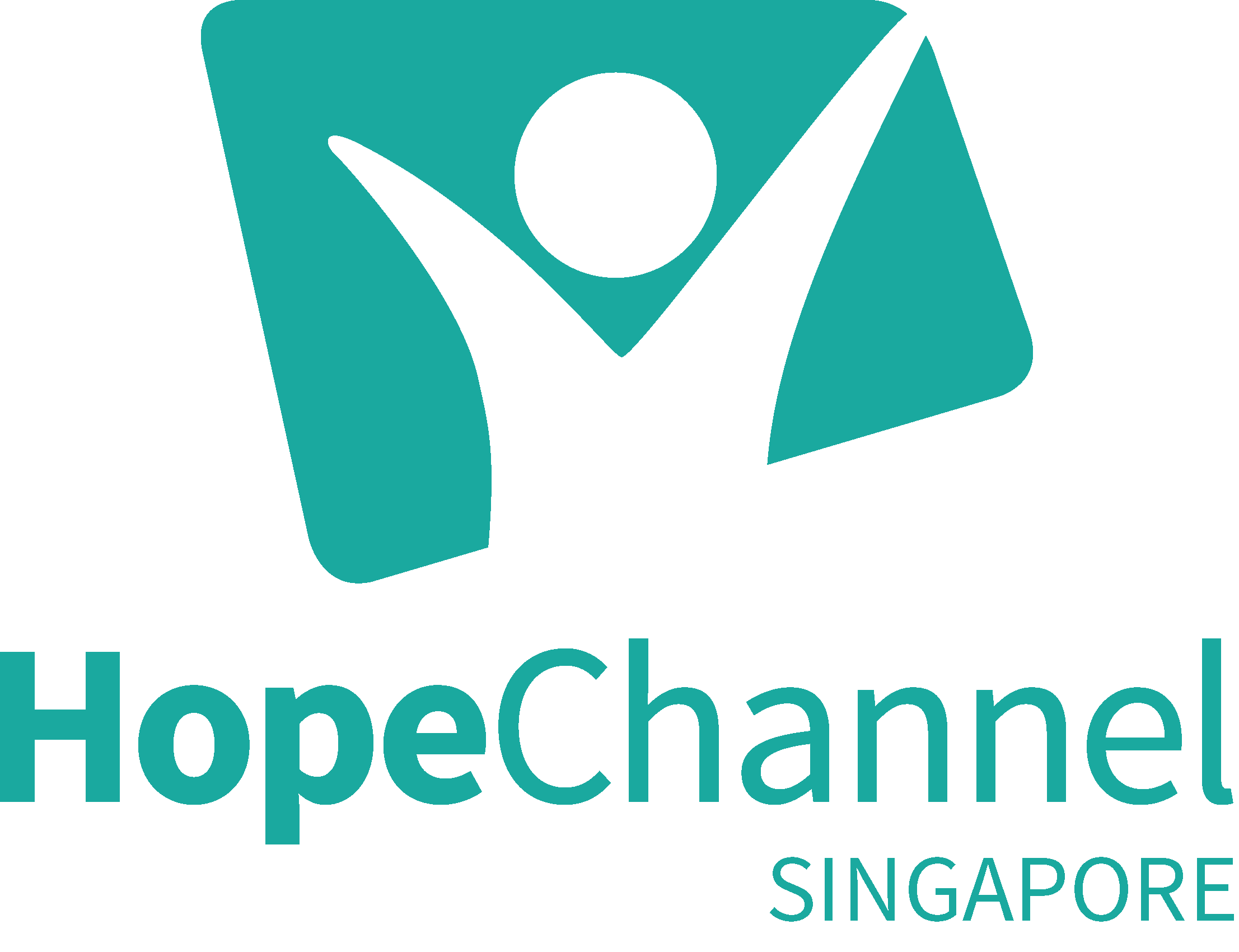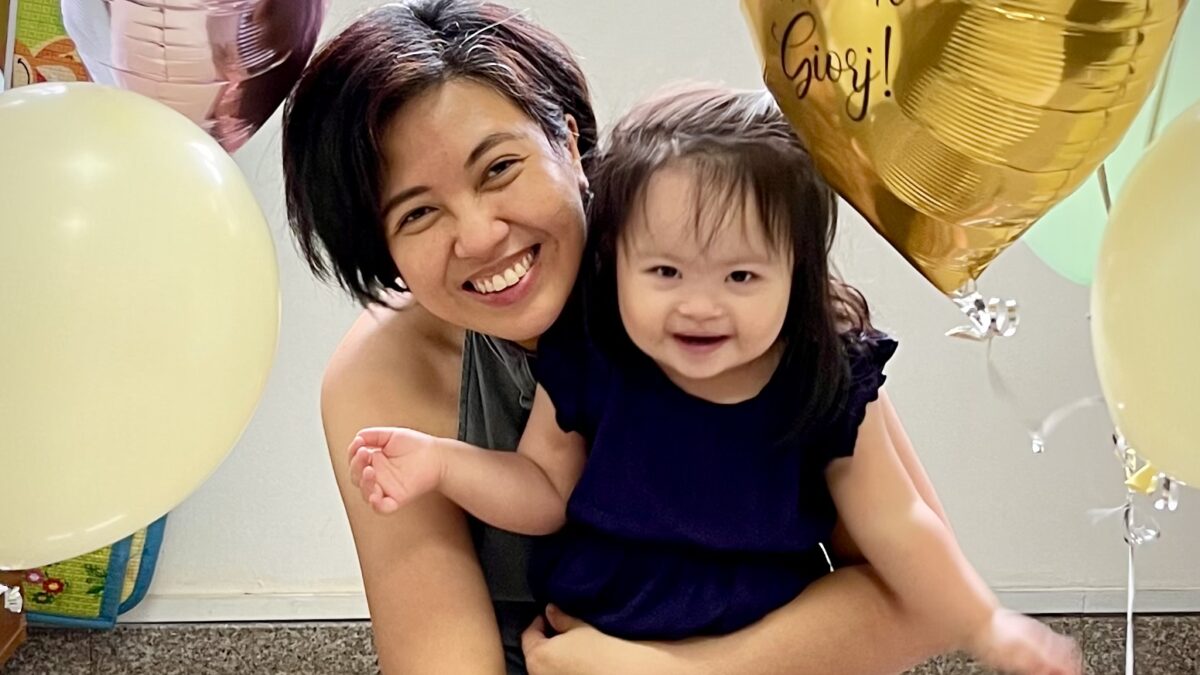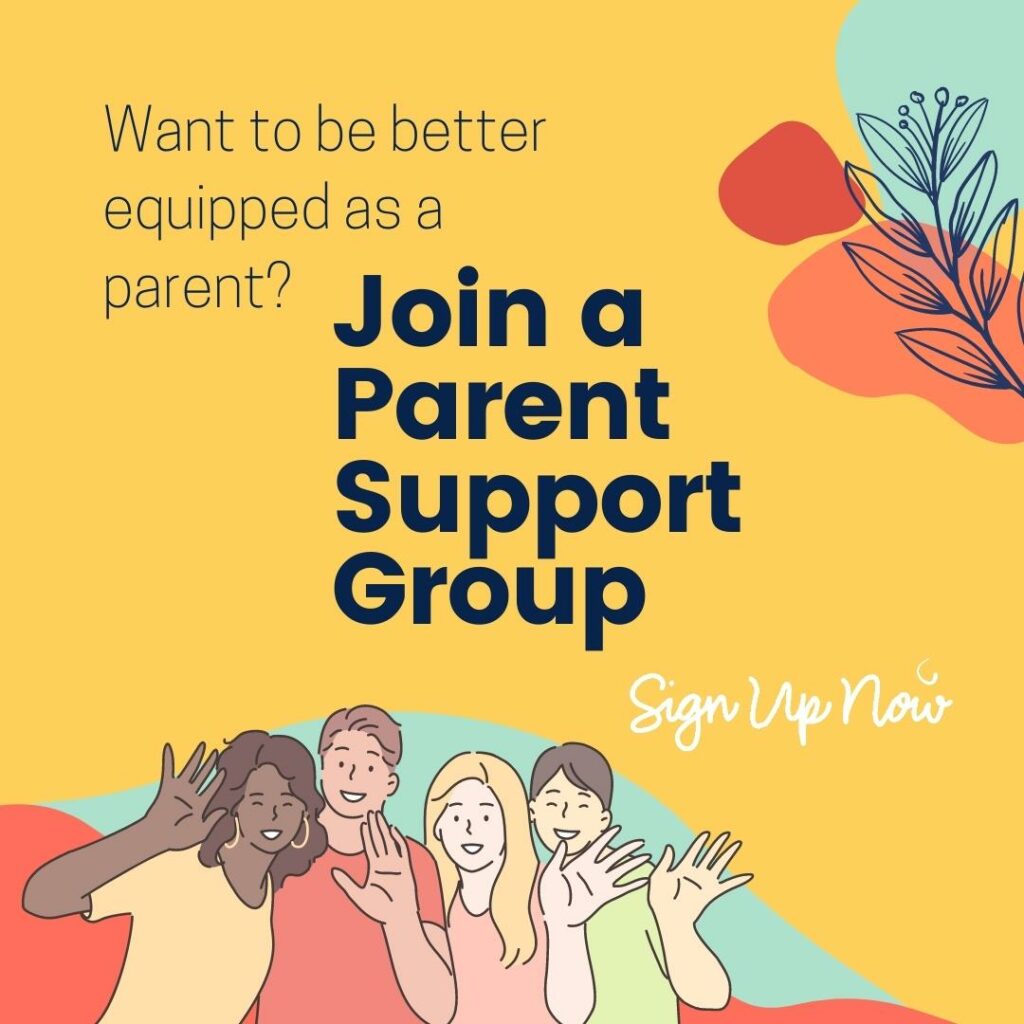Before becoming pregnant, I had a very basic but largely positive view of Down syndrome. It’s not bad or sad, just different. I knew that society now is far more accepting of people with this condition than decades ago. Then it hit home. We found out our baby has Down syndrome. Our hearts are blown into smithereens on a loop. None of that ‘Down-syndrome-is-accepted-now’ had any use or consolation.
“Why did our precious baby develop Down syndrome?” From the moment I learned of our diagnosis, I kept asking myself this loaded question. I wondered if this question would haunt us for the rest of our lives.
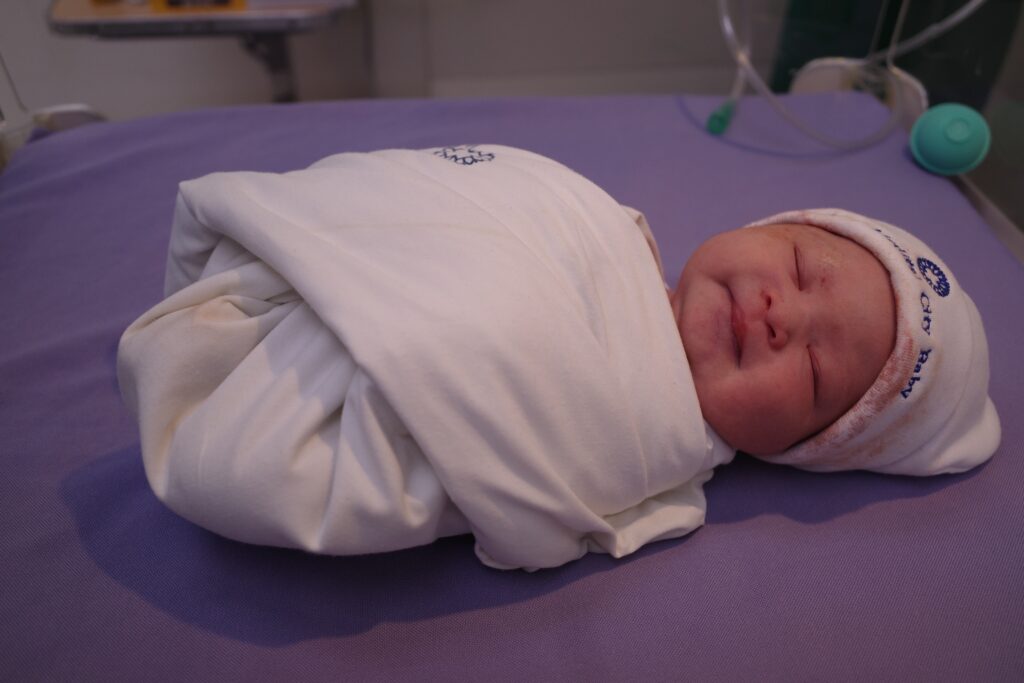
I was 37 when I carried Hailee Astrid. At 15 weeks, we learned that the baby had a 1:4 chance of having Trisomy 21. The thought that I would become a cautionary tale tortured me. Mothers and aunts warn young women about this story when they remind them of their fertile years—The woman who postponed pregnancy until too late. It didn’t matter that I had two miscarriages before this miracle baby. Or that we had a thorough genetic screening to know what caused the recurrent pregnancy losses. Or that doctors found nothing. Not even a family history of genetic issues. Suddenly, my unborn child and I were reduced to a statistic. Hailee Astrid was the 1 in 225 because of my unwise and selfish life choices. The diagnosis consumed me with guilt and self-gaslighting. Over the course of the pregnancy, I lost count of how many times I asked God why my baby should suffer my punishment.
Was it necessary for me to carry all that anger and guilt? No. If Down syndrome and late pregnancies didn’t carry that much stigma, I wouldn’t have been so angry at myself. Yes, a woman’s risk of pregnancy complications increases with maternal age. However, 80% of babies with Down syndrome are born to women under 35. Science has still not proven if advanced maternal age is the leading cause behind this genetic condition. Risk factors are not causes. Down syndrome is caused by a random event during cell division after the sperm and the egg fertilise, and in such a rare occurrence, the foetus usually doesn’t survive. But our little Hailee did. Her condition may have taken place randomly, but everything about her is deliberate, valid, and promising. Our family is not a cautionary tale.
Expectation versus Reality
When we learned of Hailee’s condition, one of the best pieces of advice I received was to grieve over the ‘death’ of the ideal, typical baby in our minds and then move on. It was a nasty sucker punch, but it was also sobering.
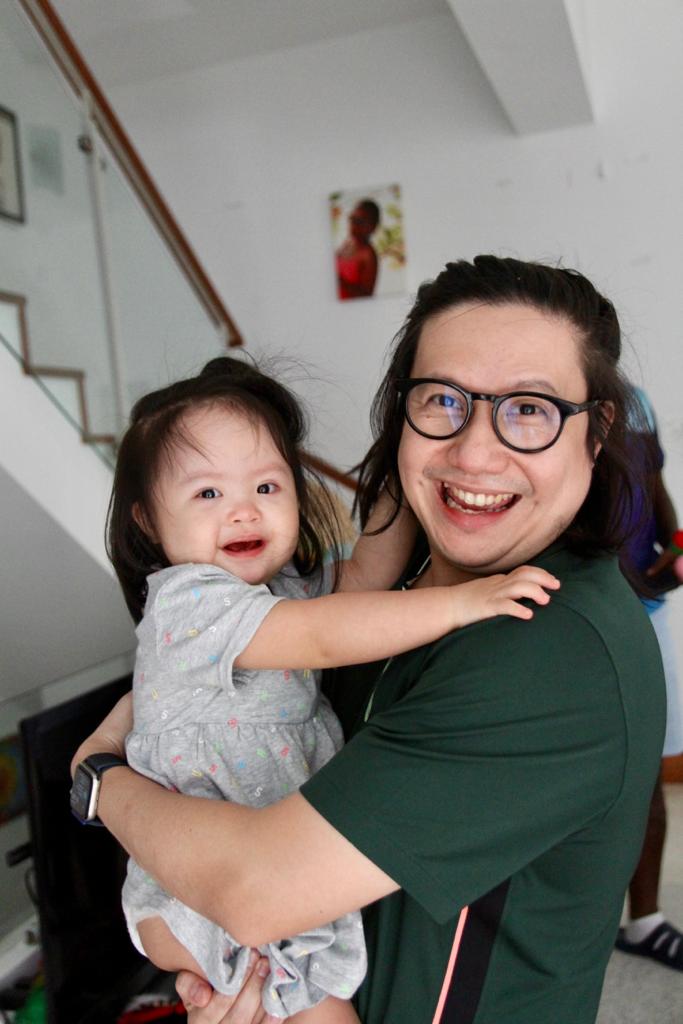
Three days after Hailee was born, an abdominal scan showed an unusual narrowing in her large intestine called duodenal stenosis, which caused her to expel blood. An operation was required, so we left the hospital without her. My husband and I asked God again if this was the start of many medical procedures that Hailee would face in her life. I couldn’t bear the thought of our 4-day-old baby being cut open. She spent the first 27 days in the NICU, and each day, I saw how she fought for her life. And she survived! That ordeal taught us to look at Hailee from a completely different prism.
As first-time parents, we learned early on that with Down syndrome, we have to look out for heart complications, thyroid disorders, feeding and swallowing issues, developmental delays, hearing and vision problems, and low muscle tone that can affect standing or walking. You learn to expect the worst so you can guard your sanity and think on your feet when something comes up in check-ups.
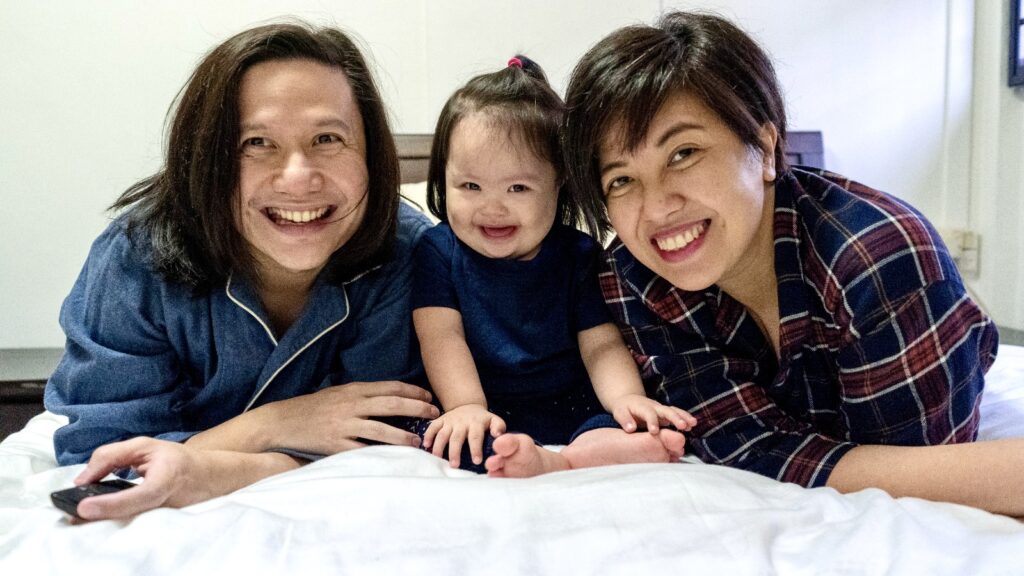
But the moment she came into our lives, Hailee taught us that people with Down syndrome are unique individuals who shouldn’t be defined by their condition. Watching her grow feels like driving on a bumpy, unfamiliar road. The drive can be exhausting at times, but with each turn, our guide, Hailee, shows us incredible milestones that we thought were just reserved for those taking the usual routes. And with each sweet reveal, we’re floored and moved and changed to look at Hailee’s future with optimism.
At ten months, she quickly learned simple sign language to communicate. She learned to stand when she was a year and seven months. From birth, she has been very responsive to music. She takes a book and sits on my lap when she wants to read. At two, she can walk, but she can’t talk. We give her early intervention like physio and occupational therapies to assist her development, but we’ve also learned that Hailee has her own timeline, and we respect that.
She will probably work twice or thrice as hard as her neurotypical peers to catch up on a functional level, but we’re in no hurry. This road guide that we met has changed us. We choose not to obsess about getting to the destination. Instead, we savour every turn, roadblock, and rare sight we’ll be seeing along the way. We’ve learned to trust her lead in this journey with a promise that we’ll hold her hand until we get to our destination, no matter how long it takes.
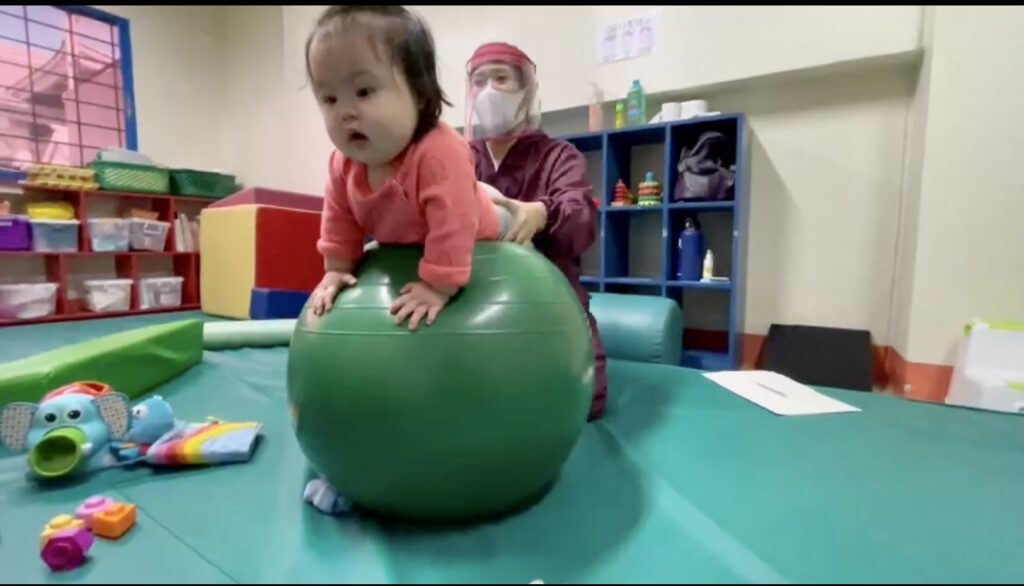
Redefining Down Syndrome
Parents who have children with disabilities often share the experience of advocating for their children. A switch automatically clicks as soon as you get a diagnosis. During my pregnancy, I didn’t want to talk to anyone about our diagnosis. It wasn’t out of shame, but because I was paralyzed by fear. However, the Lord guided me to parent advocates on the Internet, who helped me reframe my view of how Down syndrome works. They shared with so much earnest honesty and realness. Reading about their children living with Down syndrome helped me feel less alone.
Additionally, these parent advocates introduced me to inspiring people with Down syndrome who are competitive athletes, actors, fashion designers, and motivational speakers – people who, through their determination and support systems, are leading fulfilling lives and reclaiming the definition of Down syndrome. These possibilities and opportunities made me feel so hopeful for Hailee’s future.

After two years, do I still ask God why our baby has Down syndrome? Not as often. But when I do, I no longer ask with bitter resentment but with curiosity and anticipation for her future.
As parent advocates, there are no walls too high, no doors too tightly shut that we will not break down to make space for children. We would like the world to see them as people who also deserve the same treatment that neurotypical people get.
We can only create inclusive spaces for Hailee and other people with Down syndrome if we can find the right allies, and people will only decide to be our allies if they understand that this is a fight worth standing up for.
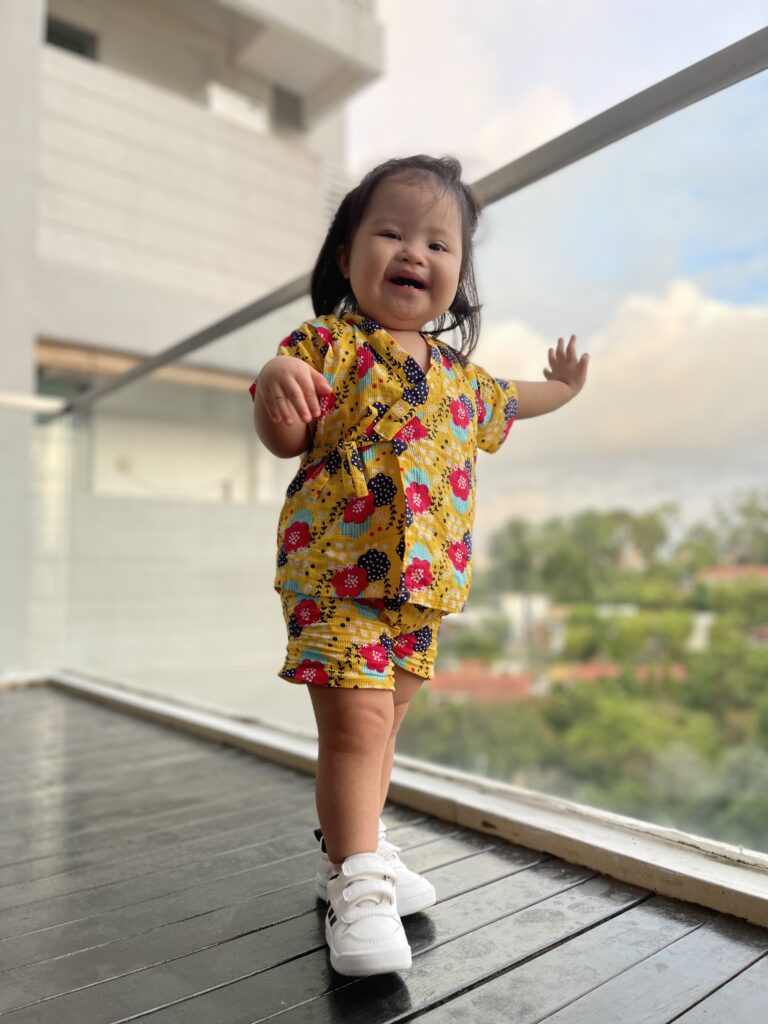
As the world celebrates Down Syndrome awareness on 21st March, I hope that by sharing our journey, more people will have an interest to correct the misconceptions about Down syndrome.
They are not living sad, unfortunate lives. Many of them try their very best to build a life that they can be proud of, just like you and me. It’s a day to learn how we can fight prejudice and discrimination by giving them a chance to prove their worth.
The more we know about people with Down syndrome, the more hope we have in creating societies that see them for who they are, not just their condition.
Do you have a story or experience personal to you that you would like to share? Tell us! Selected stories will be featured on our website and social media.
Giorjean
Giorjean is a media ninja and mom to Hailee Astrid, a sparkly girl with an extra chromosome. She and her husband, France, share about their family journey as they navigate and celebrate life with down syndrome. Follow Hailee Astrid’s adventures on Instagram @hailee_astrids_flying_house
